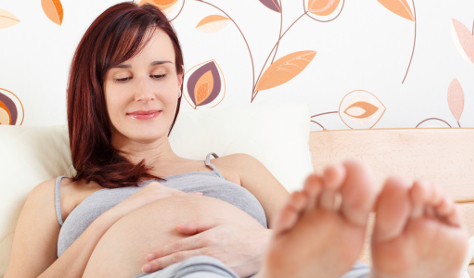Common pregnancy problems to be aware of
Being aware of potential pregnancy complications can help you seek help early

Your body works a total miracle during pregnancy – quietly making a brand new baby. So it’s no wonder you’ll feel plenty of changes right from the start. Most pregnancies go smoothly without any complications with your regular check ins with your midwife, but if you do feel worried between appointments with your healthcare team, play it safe and speak to your maternity team straight away.
There are some conditions you need to watch out for – here’s a quick guide.
Gestational diabetes
Gestational diabetes tends to kick in during the second or third trimester. If it’s not treated it can affect your baby’s growth, damage the placenta or cause premature birth. The good news is it’s usually picked up by routine tests, can be treated and usually goes away when the baby’s born.
Pre-eclampsia
Mild Pre-eclampsia affects up to 6% of UK pregnancies, and severe pre-eclampsia develop in about 1-2% of pregnancies. Common signs are high blood pressure and protein in your urine, so it should be picked up at routine health checks. It tends to show up towards the end of pregnancy, although it some cases can occur much earlier in pregnancy – symptoms include severe headaches, blurred vision, flashing lights before your eyes and swelling. It’s usually easily managed, but in rare cases it can cause the mum to have fits and affect the baby’s growth - so if you’re concerned, get advice.
Pelvic Girdle Pain (PGP) or Symphysis Pubis Dysfunction (SPD)
Pelvic Girdle Pain, also can be known as Symphysis Pubis Dysfunction can kick in when the ligaments around your pelvis get so relaxed and stretchy they can’t keep your pelvis correctly aligned. It can be pretty painful, so your midwife might suggest a few exercises, refer you for physiotherapy, or suggest you wear a supportive girdle (rock that look!) to help ease the discomfort.
You may also have to cope with some pretty embarrassing health problems in pregnancy, or for the full list of potential pregnancy issues, visit NHS Choices.